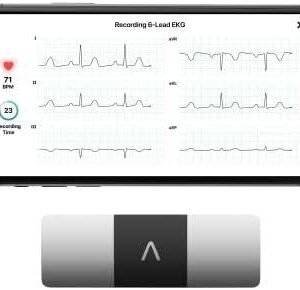Subscribe to Updates
Get The Latest News, Updates, And Amazing Offers
Products
Important Pages:
Browsing: Healthtech
Smart beds integrate advanced technologies to enhance patient comfort during recovery. By automatically adjusting position, providing pressure relief, and tracking vital signs, these beds promote optimal healing environments, reducing pain and improving outcomes.
The Internet of Things (IoT) is revolutionizing health monitoring by enabling real-time data collection and analysis. Connected devices enhance patient care through continuous tracking, early detection of issues, and streamlined communication between patients and healthcare providers.
In an era where HealthTech innovations are rapidly evolving, robust cybersecurity measures are essential. Protecting sensitive patient data against breaches not only ensures compliance with regulations but also fosters trust, enabling seamless integration of technology in healthcare.
Remote Patient Monitoring (RPM) enhances healthcare delivery by enabling real-time data collection and analysis. This technology facilitates timely interventions, improves patient engagement, and reduces hospital readmission rates, leading to more efficient care management.
Predictive analytics leverages vast datasets to forecast health trends, enabling proactive measures in preventative medicine. By identifying at-risk populations and tailoring interventions, healthcare providers can significantly improve health outcomes and resource allocation.
HealthTech startups are pivotal in transforming healthcare through innovative solutions, leveraging AI, telemedicine, and data analytics. These ventures accelerate advancements, enhancing patient care, streamlining operations, and reducing costs across the sector.
The evolution of digital twins in personalized healthcare has transformed patient management by creating dynamic, virtual replicas of individuals. This technological advancement enhances predictive analytics, enabling tailored interventions and optimized treatment outcomes.
Integrating digital therapeutics into chronic disease management enhances patient engagement and provides real-time data analytics. These tools facilitate personalized care, improve adherence to treatment protocols, and ultimately lead to better clinical outcomes and reduced healthcare costs.
Mobile health apps are revolutionizing patient care by facilitating real-time health monitoring, enhancing communication between patients and providers, and promoting self-management of chronic conditions, ultimately leading to improved health outcomes and efficiency in healthcare delivery.
Optimizing patient outcomes through digital health records involves leveraging data interoperability, enhancing care coordination, and enabling predictive analytics. These technologies facilitate accurate clinical decision-making, ultimately improving patient safety and treatment efficacy.




